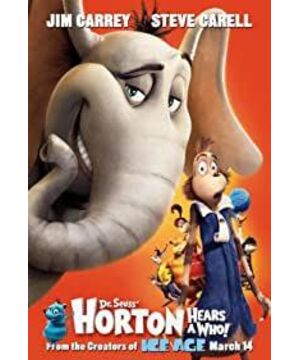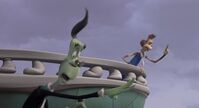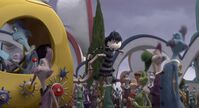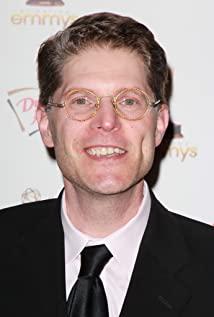However, about halfway through the film, when the various metaphors in it became more and more obvious, I gradually realized that it was not simple. So after reading it, I immediately went to check the background of the original book: 1954. Four years earlier, in 1950, McCarthy announced in Wheeling, West Virginia, that he had the Foreign Office's list of fifty-seven people with insecurity, ushering in an era that would later bear his name. . It was also in 1954 that the Senate passed a resolution formally condemning Congressman McCarthy's actions for deviating from the traditional values that the United States has always upheld, ending this extraordinary period of fear, whistle-blowing and persecution. Therefore, the original book of "Horton and the Anonymous" is equivalent to an American version of "Animal Farm".
In that mini-world in the dust, what happens is flattery to the populace. When the mayor of Whoville stood on the balcony and told the townspeople that their world was in danger, the town council members scoffed at it and promised a centennial celebration and a kite contest, and finally decided to ignore the mayor through a "democratic" approach. warning. A true statesman should be the mouthpiece of the people, but he should not be reduced to a jester of public opinion. He simply takes the responsibility of pleasing the majority and turns democracy into a simple numbers game. A true statesman not only has to say what they want to say on behalf of the people, but he also has to say what they don't want to hear regardless of the stakes. This is the difference between a statesman and a politician.
In Holden's world, the situation is even more sinister. Horton became a challenger to an established order by insisting on his unreasonable "fallacy". When the kangaroos found that their position and authority could not suppress Horton's heretical views, they turned to the condors for help from outside the system. A mature system, its existence will not be without purpose. Just like a virus firewall, the value of filtering more viruses cannot be ignored because of occasional false positives or reduced efficiency. What needs to be done is always to improve it, not work around it. After Vulture's failure, Kangaroo turned into a demagogue again, and with the slogan "for the children", she easily controlled the frenzied public opinion and used it for herself. At this time, the public became the most powerful tool in her hands. Democracy does not mean that the majority can suppress the minority and do whatever it wants, because the majority is not always right, because the majority can also be the perpetrator of the majority.
Horton the Elephant is a determined and optimistic doer. Whether it's when none of the animals in the jungle beyond a few furry children believe him, when that alfalfa flower falls into a clump of 3 million alfalfa flowers, or when he's surrounded by angry animals and put in prison In the cage, Horton insisted, as always, that there was life in that mote. Even if they can't see or touch, "A person is a person, no matter how small." A different voice is a different voice, no matter how small it is. Horton insisted and did it because he was "100%" true to his heart. After every animal finally heard Whoville's cry, Horton happily handed the cookie that the rabbit had given him to the renegade kangaroos. Adherence to principles is not a means of suppressing others, but merely to adhere to principles.
JoJo has two different identities: lonely, misunderstood child and silent. Living under the strong expectations of his father, he ran to the observatory alone at night, immersed in a world of his own. The moment the observatory opened, I thought I was watching a Tim Burton movie. And when everyone in Whoville was screaming for survival, it was JoJo's final addition that made everyone's cry finally break through the barrier. In some special moments, speaking up is not only a right, but also a responsibility.
From a personal point of view, "Horton and the Anonymous" is one of the most in-depth Hollywood cartoons I've seen, and at the same time, there are many vivid characters and jokes, and it is really suitable for all ages. Overall, it's not inferior to Wall-E or Uptown, or even better, if you can read it.
View more about Horton Hears a Who! reviews











